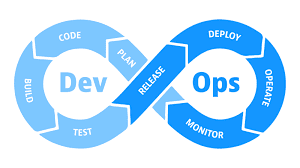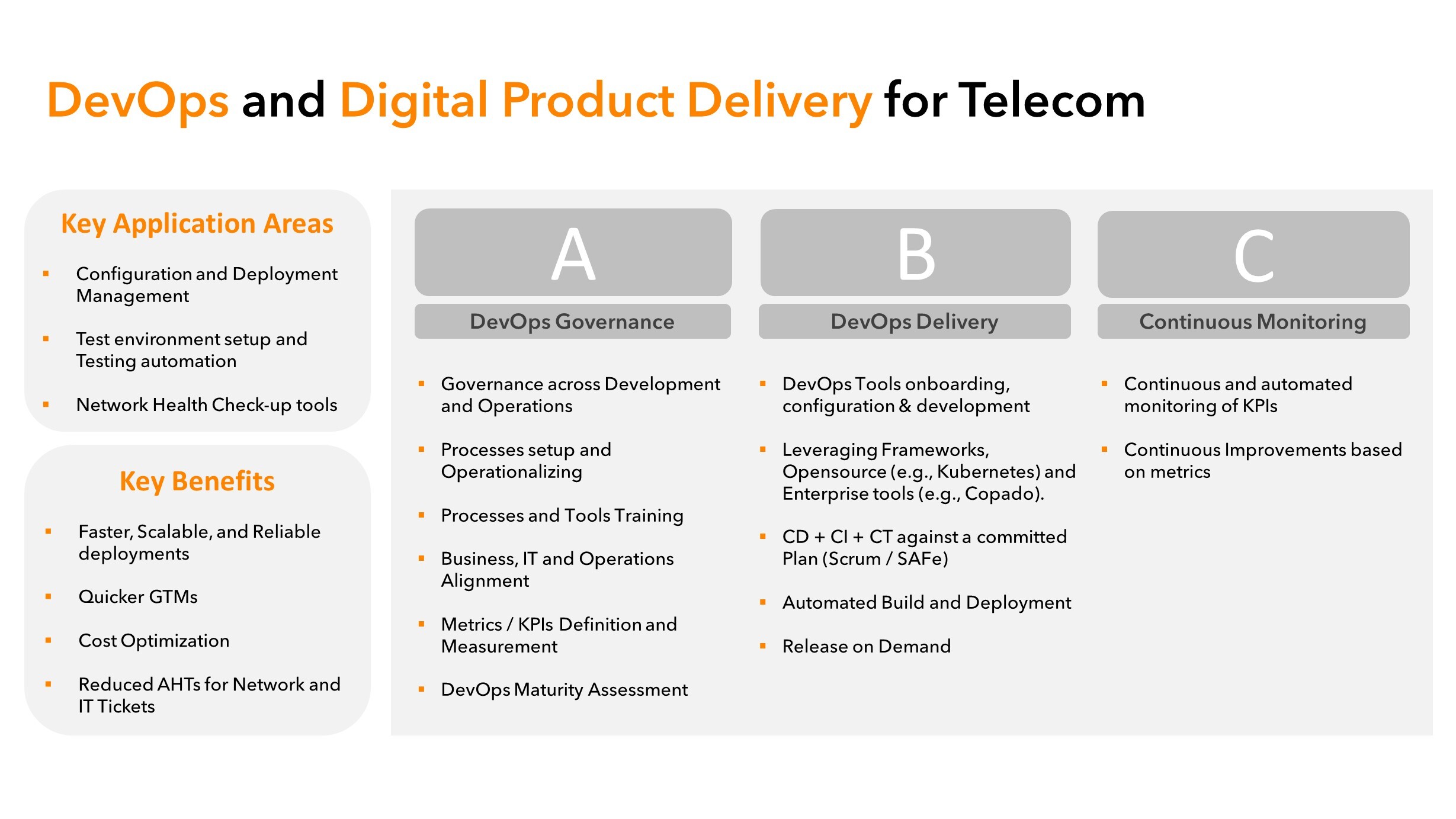Driving agility with DevOps in Telco


Without the right approach, products can become obsolete even before they are launched. This is especially true for the telecom industry, given its dynamic nature.
The key challenges faced by Telcos with Digital Product Delivery are:
- Large release cycles due to simultaneous deployments in different networks/geographies.
- Ensuring data consistency and integrity across different systems/networks and performing extensive regression testing.
- Responding to fast-changing market demands.
This translates into faster product conceptualization and rollouts, while GTMs are critical. Telcos, however, are struggling to keep up with the pace as over a period of time, they have created monolith IT infrastructure which is unable to respond to market forces. To overcome this challenge, DevOps might be the answer Telcos are looking for.
But what exactly is DevOps?
Simply put, DevOps is an amalgamation of the terms "Development + Operations," signifying a cultural shift (combined with the corresponding tools and processes to support/augment it) where the development and IT operations teams work in close cohesion to deliver applications and services while enabling faster deliveries with additional automation.
DevOps makes use of concepts like CI/CD (Continuous Integration, Continuous Delivery) which means:
- Developers practicing CI merge their changes back to the main branch as often as possible. This would help avoid integration challenges and aids agile delivery.
- The Continuous Delivery mechanism automatically deploys all code changes to the testing and/or production environment after the build stage. This means that there is an automated release process where applications can be 'Released-on-Demand.'
The key characteristic of DevOps is advocating automation at every step of software development and IT Operations (like testing, deployment, monitoring, and support) as well as aligning Telco's Operations with this mode of delivery.
How can DevOps help Telco’s?
When it comes to Telecom, the key areas where DevOps would particularly help are:
- Configuration and Deployment Management: This is critical as it ensures deployment is done faster and seamlessly across networks and geographies.
- Test environment setup and Testing automation: This would ensure more reliability and consistency and can be achieved at a greater rate, thereby addressing the core issue – the need for speed.
- Network health check-up tools: Given the complexity associated with telecom networks, a network health check must be done before every deployment/rollout to minimize network outage risk.

The key benefits that telcos could derive from DevOps implementation are:
- Faster, scalable, and more reliable deployments.
- Quicker GTMs and the ability to respond to market demands at the required pace.
- Cost optimization due to leaner operational team structures.
- Reduced AHTs for Network and IT support tickets on account of lesser manual handoffs between Dev and Ops teams.
Given the benefits, no brownie points for guessing that Telecom is one of the leading domains in DevOps adoption. To truly evolve, Telcos must start upgrading their business model by building a communications services marketplace with an ecosystem of partnerships with emerging players. This way, Telcos will be able to come up with new innovative offerings by collaborating with digital service providers. To stay ahead of the curve, a faster concept to launch is not only critical but one of the KPIs for digital transformation. Telcos should focus on the core transformation of the architecture along with IT and Infra while ensuring its reusability.
Telecom service providers have challenges in terms of scalability, agility, and security. It is important to choose the best phase of digital architecture and integration pattern and then choose the right delivery vehicle, which is DevOps. The right digital transformation strategy can help Telcos align their organization’s vision, ensure superior customer experience, and ultimately, deliver more value to their customers.
As the telecom industry moves towards enhanced use of virtual platforms, DevOps is becoming a critical model to streamline this transition. In a nutshell, the need for speed is the need of the hour. Telcos are still in the process of adopting DevOps, but the ones that move quicker towards adoption will surely be the true winners in the long term. Quite evidently, they would be better equipped to respond to the frequent and inevitable changes in market dynamics.


